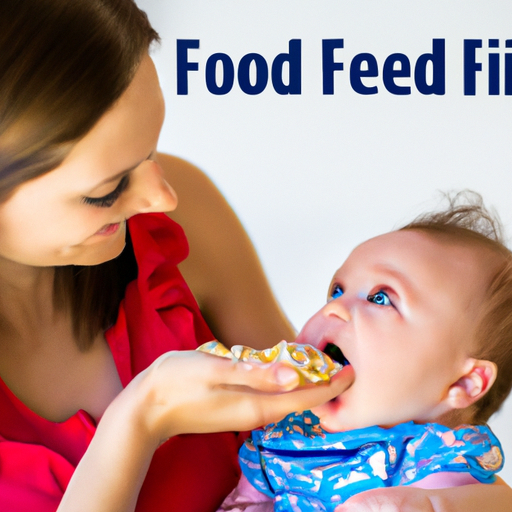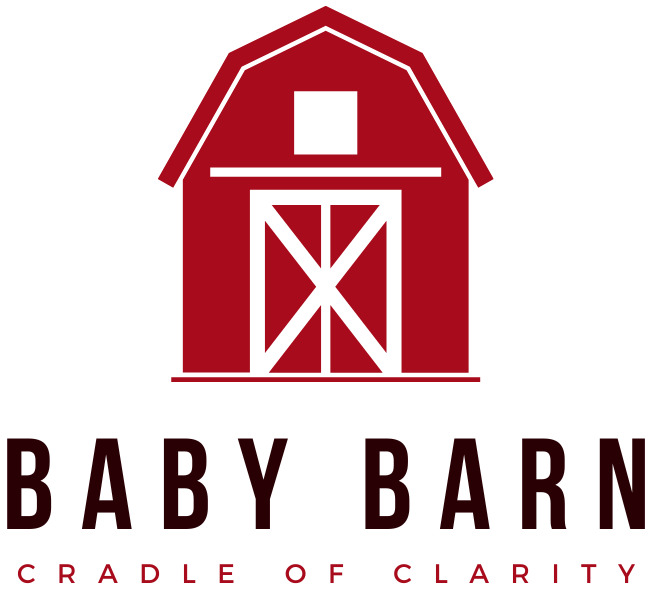Feeding your baby can sometimes feel like a guessing game, especially when it comes to figuring out how often to feed them. You might be wondering if you’re giving them enough or if you’re feeding them too frequently. It’s totally normal to have these questions and concerns, but don’t worry! In this article, we’ll dive into the topic of baby feeding schedules and explore how often you should be feeding your little one.
If you’re curious about the recommended feeding frequencies for infants of different ages, or if you want tips on how to establish a feeding routine that works for you and your baby, this article has got you covered. We’ll discuss the general guidelines for feeding newborns, as well as how those recommendations change as your baby grows.
So, if you’re ready to feel more confident about your baby’s feeding schedule, keep reading to learn more! Feeding your baby is an essential part of their growth and development. As a new parent, it’s natural to have questions about how often to feed your little one. In this article, we will explore the recommended feeding guidelines for newborns, infants, and the introduction of solid foods. We will also discuss the factors that can affect feeding frequency and how to recognize hunger and fullness cues in your baby.
Benefits of Breast Milk
Breast milk is often referred to as “liquid gold” because of its numerous advantages for your baby’s health. Breast milk provides all the necessary nutrients, including proteins, fats, carbohydrates, vitamins, and minerals, that your baby needs for optimal growth and development. It is easily digested and provides the perfect balance of nutrients for your baby’s delicate digestive system. Breast milk also contains essential antibodies that help boost your baby’s immune system, protecting them from infections and illnesses.
Furthermore, breastfeeding promotes a special bonding experience between you and your baby. The physical closeness and skin-to-skin contact involved in breastfeeding help foster a deep emotional connection, promoting feelings of comfort and security in your baby.
Nutritional Value of Breast Milk
Breast milk is tailored specifically to meet your baby’s nutritional needs. It changes in composition as your baby grows, providing the necessary nutrients at each stage. It contains the ideal balance of proteins, fats, and carbohydrates that are easily digestible for your baby’s developing digestive system. Breast milk also contains antibodies, enzymes, hormones, and immune cells that help strengthen your baby’s immune system and protect against infections. Additionally, breast milk is rich in essential fatty acids for brain development and contains live cells that contribute to the healthy development of your baby’s gut.

Immune System Benefits
Breast milk provides invaluable immune system benefits for your baby. The antibodies present in breast milk help protect against common illnesses such as respiratory infections, ear infections, and gastrointestinal infections. Breastfed babies have a lower risk of developing allergies, asthma, and autoimmune diseases later in life. The immune-boosting properties of breast milk can also help reduce the severity and duration of illnesses when your baby does get sick. Breastfeeding exclusively for the first six months of your baby’s life is recommended to provide maximum protection and health benefits.
Bonding with Baby
Breastfeeding not only nourishes your baby but also helps strengthen the bond between you and your little one. The skin-to-skin contact and physical closeness involved in breastfeeding create a special connection that promotes emotional well-being for both you and your baby. As you breastfeed, your baby is comforted by your presence, your smell, and the rhythmic motions of nursing. This bond formed during breastfeeding can have lifelong benefits, contributing to your baby’s emotional development and building a secure attachment between parent and child.

Feeding Guidelines for Newborns
In the first few weeks of your baby’s life, frequent feedings are recommended. Your newborn’s stomach is small and can only hold a small amount of milk, so they will need to eat frequently, usually every 2-3 hours. It is important to respond to your baby’s hunger cues rather than following a strict feeding schedule. Some common hunger cues include sucking motions, rooting reflex, crying, or fussiness.
Remember, every baby is different, and some may need to feed more frequently than others. Trust your instincts as a parent, and if you are unsure whether your baby is getting enough milk, consult with a healthcare professional. Monitoring your baby’s hunger cues is essential in ensuring they are getting enough nourishment. A hungry baby may display signs such as sucking on their hands or fingers, smacking their lips, or making rooting motions with their mouth. Crying is a late hunger cue, so it’s best to respond to the earlier cues before your baby becomes overly hungry or upset.

Understanding When Baby is Full
Recognizing your baby’s signals when they are full is just as important as identifying their hunger cues. Babies have natural mechanisms to indicate they’ve had enough milk, such as slowing down their sucking or turning their head away from the breast or bottle. It’s essential to respect these cues and not force your baby to continue feeding past their point of fullness.
Feeding Frequency for Infants
As your baby grows and their stomach capacity increases, their feeding frequency will likely decrease. Breastfeeding on demand is recommended for infants, which means feeding your baby whenever they show signs of hunger. This ensures that your baby receives the necessary nutrients and helps establish a healthy milk supply. In general, newborns may feed 8-12 times a day, but this can vary for each baby. As your baby gets older, they may begin to feed less frequently.
For formula-fed infants, a schedule can be established based on their age and individual needs. It is important to follow the instructions provided by the formula manufacturer and consult with your pediatrician to determine the appropriate amount and frequency of formula feeding for your baby.

Age-Specific Feeding Guidelines
As your baby grows, their nutritional needs also change. The American Academy of Pediatrics recommends exclusive breastfeeding for the first six months of your baby’s life, followed by the introduction of solid foods while continuing to breastfeed until at least 12 months or longer, as mutually desired by mother and baby. The introduction of solid foods typically begins around six months of age, when your baby shows signs of readiness.
Introducing Solid Foods
Signs that your baby may be ready for solid foods include the ability to sit up with support, good head control, and showing interest in what others are eating. It’s important to introduce one new food at a time, waiting a few days before introducing another, to monitor for any possible allergic reactions or intolerances. Start with iron-rich foods, such as iron-fortified cereals, pureed meats, or legumes, and gradually introduce a variety of fruits, vegetables, and grains.

Gradual Introduction of New Foods
When introducing solids, start with a small amount, about a teaspoon, and gradually increase the portion size as your baby becomes accustomed to eating. Offering a wide variety of foods will expose your baby to different tastes and textures, helping them develop a varied and balanced diet. It’s also important to provide water in a cup to complement solid foods, as breast milk or formula alone may not quench your baby’s thirst.
Typical Feeding Schedule for Solids
During the first few weeks of introducing solids, it’s common for your baby to only eat a small amount once a day. Over time, you can gradually increase the frequency and amount of solid food, aiming for three meals a day by around nine months of age. However, every baby is unique, and it’s essential to follow your baby’s cues and adjust the feeding schedule accordingly.
Balancing Milk and Solids
As your baby begins to eat more solid foods, you may need to adjust the proportion of milk and solids in their diet. Breast milk or formula will still provide the majority of your baby’s nutrition in their first year of life. Gradually increase the portion sizes of solid foods while maintaining regular breastfeeding or formula feeding. This gradual transition allows your baby’s digestive system to adapt to the new foods and ensures a balanced and nutritious diet.
Maintaining Breastfeeding While Introducing Solids
Introducing solid foods does not mean you have to stop breastfeeding. Breast milk continues to provide valuable nutrition and immune support for your baby, even as they begin to eat solid foods. Breastfeeding can continue alongside the introduction of solids and can be a source of comfort and nutrition for your baby. Many breastfeeding mothers find that breastfeeding sessions become shorter as solid foods are introduced, but the frequency and duration of breastfeeding will vary from baby to baby.
Monitoring Baby’s Reaction to New Foods
When introducing new foods, it’s important to pay attention to how your baby reacts. Look out for any signs of allergies or intolerances, such as rash, hives, vomiting, diarrhea, or excessive fussiness. If you suspect your baby is having an adverse reaction to a specific food, stop offering it and consult with your pediatrician. They can provide guidance on food allergies and help you navigate your baby’s dietary needs.
Factors Affecting Feeding Frequency
Several factors can influence your baby’s feeding frequency. Growth spurts are periods when your baby experiences rapid growth and may require more frequent feedings. These growth spurts typically occur around two weeks, six weeks, and three months of age. Additionally, your baby’s sleep patterns can affect their feeding frequency. Some babies may wake up more frequently at night and require more frequent feedings to satisfy their hunger. Each baby is unique, and it’s important to consider your baby’s individual needs when determining their feeding frequency.
Recognizing Hunger and Fullness Cues
Understanding your baby’s hunger and fullness cues is crucial in providing them with proper nourishment. Crying is a late hunger cue, so it’s important to respond to your baby’s earlier cues, such as sucking motions, smacking their lips, or rooting reflex. Similarly, your baby will show signs of fullness, such as slowing down their sucking, turning their head away from the breast or bottle, or pushing the bottle away. By paying attention to these cues, you can ensure that your baby is getting enough nourishment without overfeeding.
Common Feeding Challenges
Breastfeeding may come with its own set of challenges, such as latching difficulties, low milk supply, or sore nipples. Consulting with a lactation consultant or healthcare provider can offer guidance and support to overcome these challenges. Similarly, formula feeding may present issues like reflux, constipation, or difficulty switching between different formulas. It’s important to communicate any concerns or difficulties with your pediatrician, who can provide appropriate advice and solutions.
Consulting a Healthcare Provider
It’s always a good idea to consult a healthcare provider, such as a pediatrician or lactation consultant, for guidance on feeding your baby. They can provide specific advice tailored to your baby’s individual needs and address any concerns or questions you may have. Regular check-ups with your pediatrician allow them to monitor your baby’s growth and development and provide appropriate recommendations for their feeding journey.
Conclusion
Feeding your baby is a vital aspect of their early life. The frequency and type of feeding will evolve as your baby grows and their developmental needs change. Remember, every baby is unique, and there is no one-size-fits-all answer to how often you should feed your baby. Trust your instincts as a parent and seek guidance from healthcare professionals when needed. By providing your baby with the nourishment they need and responding to their cues, you will ensure they have a healthy and balanced start in life.



